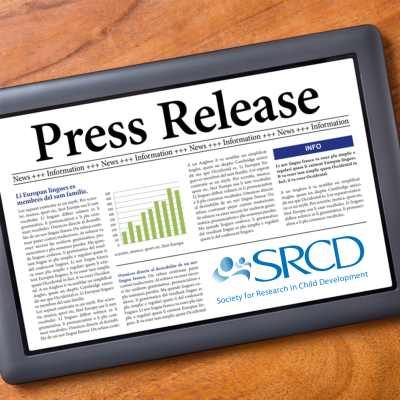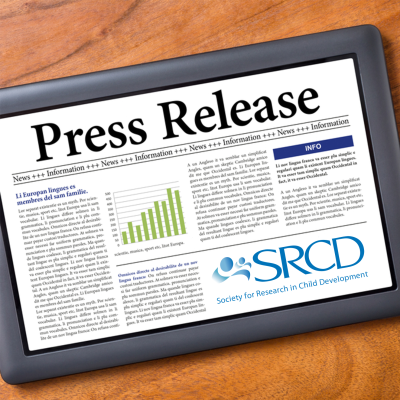Poverty May Be More Critical to Cognitive Function than Trauma in Adolescent Refugees
PRESS RELEASE / CHILD DEVELOPMENT: Embargoed for Release on October 24, 2019
For approximately a decade, research has examined whether trauma or poverty is the most powerful influence on children’s cognitive abilities. To address this question, a new study compared adolescents in Jordan—refugees and nonrefugees—to determine what kinds of experiences affected their executive function (the higher-order cognitive skills needed for thinking abstractly, making decisions, and carrying out complex plans). The study concluded that poverty worsened refugee youth’s working memory.
The findings come from researchers at Harvard University, Yale University, Queen Mary University of London, Hashemite University, the University of Wisconsin-Madison, and the University of North Carolina at Chapel Hill. They appear in Child Development, a journal of the Society for Research in Child Development.
“Our results suggest that the minds of young refugees are under the siege of poverty,” notes Kristin Hadfield, assistant professor of psychology at Queen Mary University of London, a coauthor of the report. “Even when adolescents are exposed to very high levels of war violence, it is poverty that influences their working memory. Our study suggests that aspects of adolescent refugees’ living situations after being displaced may be more important to their cognitive function than their exposure to war.”
From 2015 to 2016, researchers studied 240 Syrian refugee youth and 210 Jordanian nonrefugee youth ages 12 to 18. The youth lived in urban communities in northern Jordan close to an active war zone in nearby Syria. The Syrian refugee youth had been in Jordan an average of almost three years, so the two groups of youth were exposed in different ways to war-related violence and ongoing poverty. Syrian refugees had experienced extreme adversity and stress; by contrast, Jordanian peers had experienced less exposure to both poverty and the violence of war.
The study assessed working memory (the ability to keep goals in mind) and inhibitory control (the ability to resist doing things you haven’t planned to do); both are important for children’s learning abilities and social development. Using tablet-based tasks, the researchers assessed four factors: the youth’s poverty, levels of exposure to trauma, posttraumatic stress disorder (PTSD), and insecurity. Then they conducted analyses to test whether these factors predicted the adolescents’ performance on the tasks related to working memory and inhibitory control.
The study concluded that refugees and nonrefugees did not differ significantly in their working memory or inhibitory control, suggesting that exposure to war-related trauma may not have lasting impacts on executive function. However, the researchers found that poverty worsened the refugee youth’s working memory. Their finding echoes research on U.S. children living in poverty, for whom exposure to poverty and violence has been found to have different influences on executive function skills.
This research is the first to test the cognitive signatures of childhood exposures to trauma and poverty in refugee and nonrefugee youth. The study is limited in relying on a few measures to assess cognitive skills, and in relying on the recall of trauma exposures which can be biased by memory and experiences of PTSD. Also, the refugee youth had been out of Syria for three years on average, so the war traumas were not recent.
“In crisis settings, many health and humanitarian interventions are funded to boost social and emotional learning,” explains Catherine Panter-Brick, professor of anthropology, health, and global affairs at Yale University, who coauthored the article. “Our study signals the need to address the ongoing poverty experienced by children and adolescents affected by war, a problem that may seem less visible and urgent than the consequences of war-related stress or trauma. Our findings suggest that household poverty can influence working memory, and by extension, learning outcomes, educational achievement, and labor force participation.”
The study was designed as a partnership between Mercy Corps, an international nongovernmental organization, and researchers with expertise in conflict settings, global health, and child development. It was supported by a grant to Yale University awarded by Elrha, a United Kingdom-registered charity and subsidiary of Save the Children UK, through its Research for Health in Humanitarian Crises program, which is funded equally by Wellcome Trust and the U.K. government’s Department for International Development.
###
Summarized from Child Development, Minds Under Siege: Cognitive Signatures of Poverty and Trauma in Refugee and Non‐Refugee Adolescents, by Chen, A (Harvard University), Panter-Brick, C (Yale University), Hadfield, K (Queen Mary University of London), Dajani, R (Hashemite University), Hamoudi, A (University of Wisconsin-Madison), Sheridan, M (University of North Carolina at Chapel Hill). Copyright 2019 The Society for Research in Child Development, Inc. All rights reserved.
Contact Information:
Jessica Efstathiou
Society for Research in Child Development
202-800-3255
jefstathiou@srcd.org


